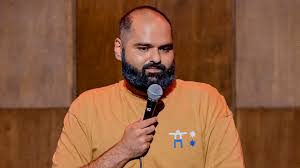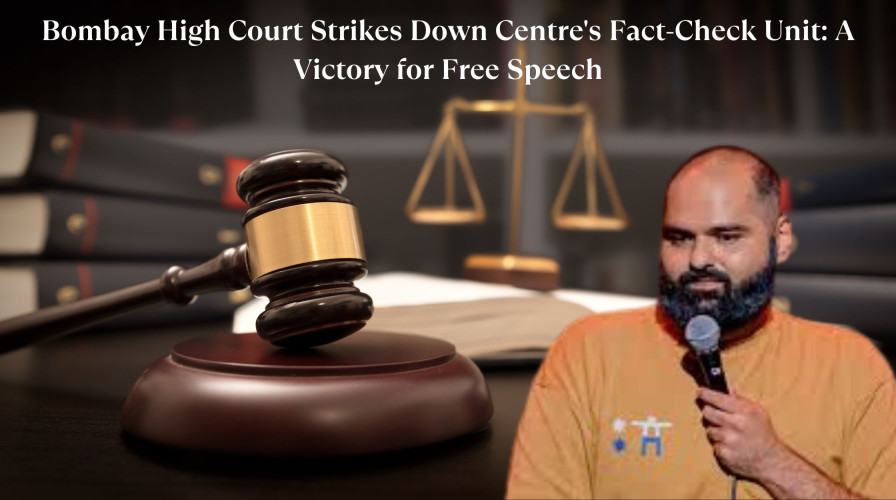In a significant ruling, the Bombay High Court has struck down the controversial provisions allowing the central government to establish a Fact-Check Unit (FCU) aimed at regulating online content related to its operations. The court deemed the amendments unconstitutional, citing their vague and overbroad nature, which posed a potential threat to the fundamental rights of free speech and trade.
Background:
The Centre's move to set up the FCU was introduced through an amendment to the Information Technology Rules in 2023. The unit was tasked with identifying and flagging digital content deemed "fake, false, or misleading" related to the central government's business. The amendment required intermediaries, including social media platforms, to prevent the publication or sharing of such content. Failure to comply would result in the loss of legal protection, or "safe harbour," for these platforms.

The amendments faced widespread opposition. Petitioners, including satirist Kunal Kamra, the Editors Guild of India, the News Broadcasters & Digital Association, and others, challenged the legality of the rules, arguing that they violated constitutional protections under Article 14 (equality before the law), Article 19(1)(a) (freedom of speech and expression), and Article 19(1)(g) (freedom of trade).
Court's Rulings and Split Verdict:
The initial legal challenge led to a split verdict in January 2024. Justice Gautam Patel struck down the amendments, stating that they infringed on constitutional principles, while Justice Neela Gokhale upheld their validity. Justice Patel argued that there were no clear guidelines for determining what constituted "fake" or "misleading" information, thus rendering the rules vague and disproportionate. The division in opinion led to the matter being referred to Justice A.S. Chandurkar.
Final Judgment:
On Friday, Justice Chandurkar delivered the final ruling, agreeing with Justice Patel's views and declaring the amendments unconstitutional. He concluded that the government's attempt to control information through the FCU would have a "chilling effect" on free speech. The rules failed the proportionality test, meaning that the restrictions imposed were not reasonable or justified under Article 19(2) of the Constitution, which allows limited curbs on free speech.
Justice Chandurkar emphasized that the right to freedom of speech and expression cannot be restricted to ensure citizens receive only "true" or "accurate" information as determined by the government. He further pointed out that the rules could compel social media platforms to take down content flagged by the FCU without any legal recourse, thus eroding the principles of natural justice.
Concerns Over Vague and Broad Provisions:
The petitioners argued that the FCU rule was vague and lacked safeguards to prevent its misuse. By making the central government the sole arbiter of truth, the amendment created an environment where intermediaries would be forced to comply with any government directive to avoid legal consequences. This, they contended, would stifle free expression and create a fear of retribution among content creators and platforms alike.
The court concurred with these arguments, with Justice Chandurkar noting that the FCU rule disproportionately targeted digital content related to the government's functioning, while exempting other forms of media. This selective regulation, according to the court, violated the right to equality.
Implications of the Verdict:
The Bombay High Court's ruling is seen as a significant victory for free speech advocates, media organizations, and digital platforms. The judgment not only upholds the right to free expression but also reinforces the importance of checks and balances when it comes to government regulation of online content.
While the Centre had argued that the FCU was necessary to combat the spread of misinformation, the court made it clear that such efforts must not infringe upon fundamental rights. The ruling highlights the need for clear, well-defined laws that respect constitutional freedoms while addressing concerns about fake news.
The quashing of the Centre's fact-checking unit by the Bombay High Court serves as a reminder of the delicate balance between regulating online content and safeguarding constitutional rights. With this ruling, the court has reinforced the principle that freedom of speech, especially in the digital age, must be protected from overreach by the state.








